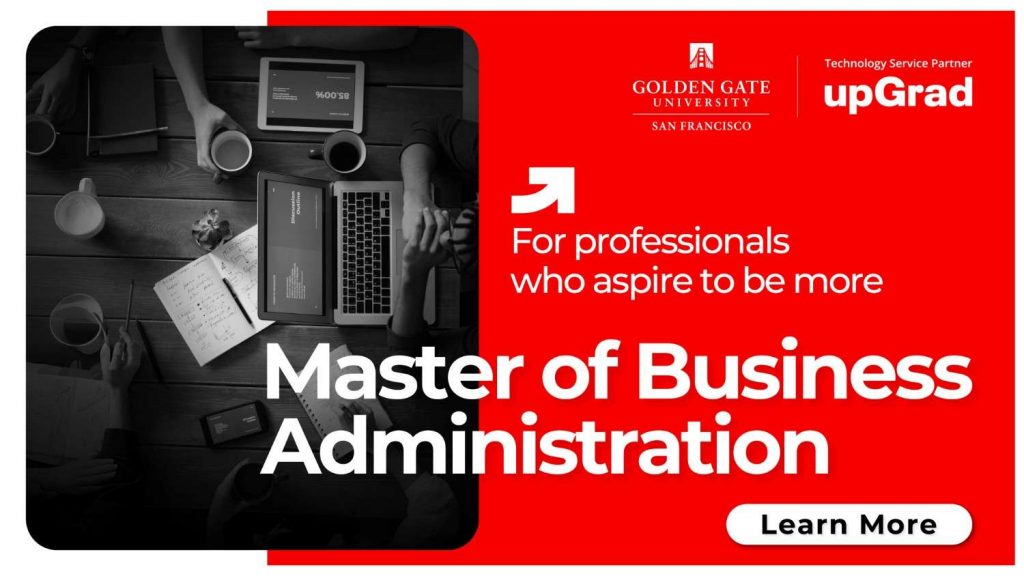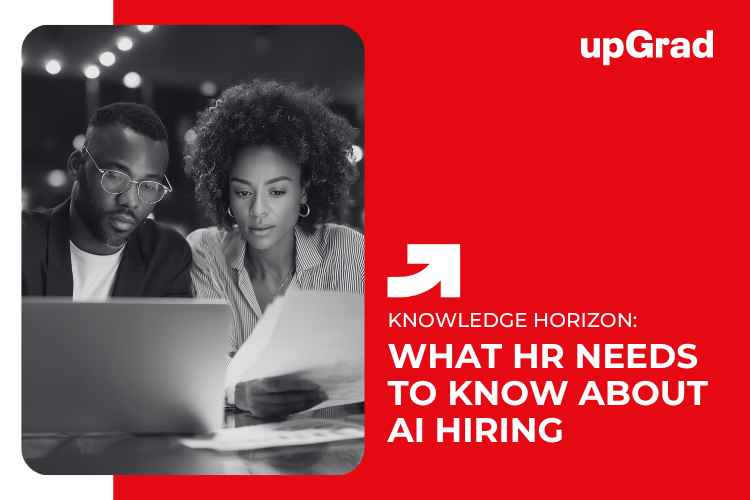Artificial intelligence (AI) is rapidly changing how individuals work, and HR and talent acquisition (TA) professionals are no exception. HR professionals are increasingly prioritising AI and recognising its value in streamlining daily tasks, especially in recruitment, where AI is enhancing efficiency and decision-making.
With a likely contribution of AI of nearly USD 16 trillion to the global economy by 2030, its impact on hiring is set to increase. The influence is such that it has become essential for HR professionals to embrace AI while understanding its advantages and pitfalls.
In this blog, we discuss the key role of AI in recruitment, guiding HR professionals on hiring trends for 2026 and what they should know.
Take your skills to the next level — Explore Online MBA Courses
AI in Recruitment: Advantages and Risks for HR Teams
AI is transforming recruitment by enhancing hiring processes and making them faster, more innovative, and more efficient. However, while it brings several advantages, it also poses risks that HR teams must carefully manage.
| AI in Recruitment | Benefits of Using AI in Recruitment | Disadvantages of AI in Recruitment |
|---|---|---|
| Used for Resume Screening | Speeds up shortlisting by quickly identifying top candidates based on specific criteria. | May overlook qualified candidates due to overly rigid keyword requirements and overly strict filtering. |
| For Matching Candidates with Roles | AI can be used to match candidates to roles based on skills, experience, and cultural fit. | It can lead to potential AI bias in recruitment if the system is trained on biased data. |
| Scheduling Interviews | AI can automate communication and calendar coordination, saving significant time for the HR teams. | It may lead to limited personal preferences and may restrict human ability to handle complex scheduling situations. |
| For Predictive Hiring Analytics | AI uses data to forecast hiring success, reduce turnover, and support strategic decisions. | Companies risk being over-reliant on data for candidate profiling, which can hinder diversity, overlook essential soft skills, and lead to biased hiring decisions. |
| For Automating Onboarding | It streamlines administrative tasks and generates training modules. | Some candidates may feel the absence of human touch in the onboarding process if AI is used excessively. |
Also Read: Highest Paying HR Jobs in Singapore to Watch in 2026

What HR Leaders Say?
Artificial intelligence and automation are set to transform the future of HR. Most HR leaders believe AI is key to the future of their field, and many have already started using it to boost efficiency. Some of them also feel that not using AI in the next 1–2 years could leave them behind competitors. With AI, HR teams can save time by utilising automated recruitment systems to automate routine tasks, reduce paperwork, and streamline processes.
Here are some top opportunities for AI in HR for leaders:
Strategic Automation
Most HR leaders consider that AI can truly make a difference in daily operations. Almost 42% highlight payroll as a key area where AI can help streamline tasks and boost accuracy. 39% of them point to recruitment, especially in high-volume hiring, where AI can assist with writing job descriptions and doing initial candidate screening. However, only 24% believe that AI will significantly impact personalising the employee experience.
Also Read: AI Career Opportunities in Singapore : A Guide to Thriving in Tech
Strategic HR
AI helps HR leaders to deliver greater business impact and act more strategically. They are of the view that AI is likely to create new roles and professional growth opportunities and will reduce or eliminate human bias in hiring and promotions by utilising automated hiring systems.
Also Read: 5 Things You Need to Know About Starting a Career in HR
How upGrad Equips HR Teams for Ethical AI Hiring
upGrad’s MBA programs provide HR professionals with the tools and knowledge to lead responsibly in an AI-driven hiring environment. The program equips professionals with both strategic understanding and technical expertise to implement AI ethically. It’s an ideal path for HR leaders in Singapore who want to stay ahead in talent acquisition while ensuring fairness and HR compliance.
🎓 Explore Our Top-Rated Courses in Singapore
Take the next step in your career with industry-relevant online courses designed for working professionals in Singapore.
FAQs on AI in Hiring: What HR Professionals Need to Know?
Q: How can HR measure ROI when adopting AI in hiring?
Ans: To understand the ROI of using AI in hiring, HR teams should track key metrics like time-to-hire, cost-per-hire, quality of hire, and candidate experience. By comparing these numbers before and after using AI tools, it becomes easier to see what’s working. Looking at saving time and money, as well as better candidate experiences and fairer hiring, to get a clear idea of AI’s value in recruitment.
Q: Are AI video interviews legally compliant in Singapore?
Ans: Yes, AI video interviews are legally permitted in Singapore, but they must comply with key regulations. Employers are required to obtain explicit consent from candidates, clearly explaining how their data will be collected, used, and stored. These interviews fall under the Personal Data Protection Act (PDPA), which mandates fair and secure handling of personal data.
Q: What are the most common AI-driven biases to watch out for?
Ans: In HR hiring, AI can sometimes show bias, such as favouring certain genders, races, or age groups, mainly because the data it’s trained on may already be biased. It can lead to unfair results, such as ignoring qualified candidates who don’t match past hiring patterns or preferred keywords. Other issues include flaws in the algorithm itself or the AI reinforcing old habits instead of improving decisions.
Q: Can AI replace the recruiter’s role completely?
Ans: No, AI won’t fully replace human recruiters. While it can handle routine tasks and speed up the process, it can’t match the human touch needed to build relationships, understand soft skills, or manage complex people situations. AI can free up your time so you can focus more on these human aspects, like having better conversations and offering real support to both hiring managers and candidates. But that only happens if you choose to work with it, not against it.
Q: How does upGrad help HR leaders stay ahead in AI-enabled hiring?
Ans: upGrad helps HR leaders stay ahead in AI-enabled hiring through its programs and certifications, guiding HR professionals in utilising AI tools for resume screening, engagement tracking, and performance prediction. upGrad equips HR professionals with the skills to make smarter, fairer hiring decisions and lead tech-enabled HR transformations confidently through its HR management programs.








